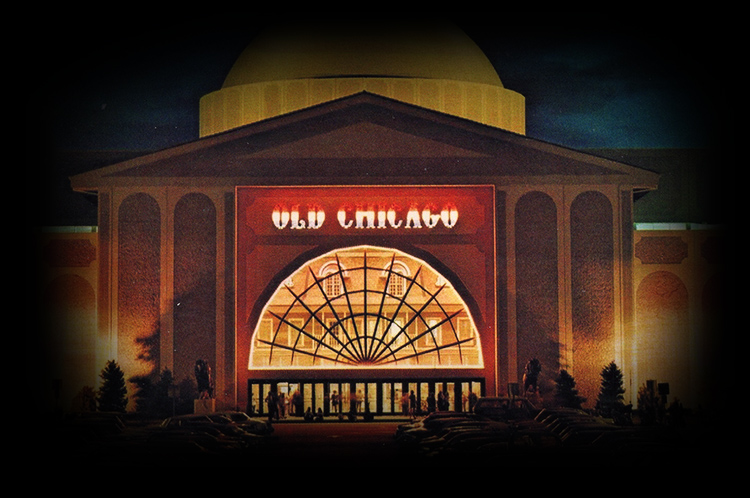
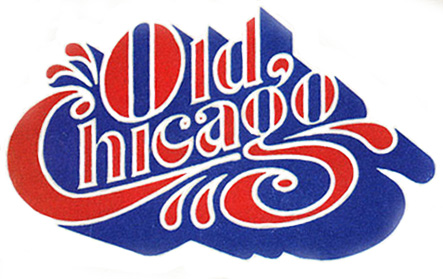
Old Chicago Shopping Center & Amusement Park
Bolingbrook, Illinois
Bringing Old Chicago to Life
Page Two
Click on any photo to see an expanded version.

Part of getting any project completed falls in the financial sector and $16 million of Old Chicago's estimated $40 million price tag came from H. F. Philipsborn & Co. and Harris Trust & Savings bank as was announced in the business pages of the June 25, 1974 edition of the Chicago Tribune.
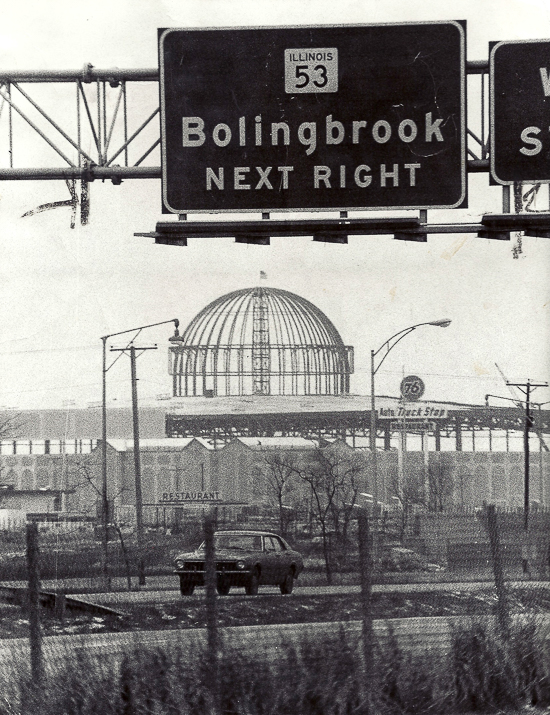
Soon Old Chicago started to rise in the Western suburbs of Chicago and it was hard to miss its signature dome taking shape as cars sped down Interstate 55.
Old Chicago at the time was one of the largest "tilt up" construction projects in the country. Tilt up construction uses pre-fabricated concrete panels that are tilted up to form the exterior walls of a building. This process is quicker and less expensive than traditional construction with the panels produced off site and then erected as soon as they arrived on site.
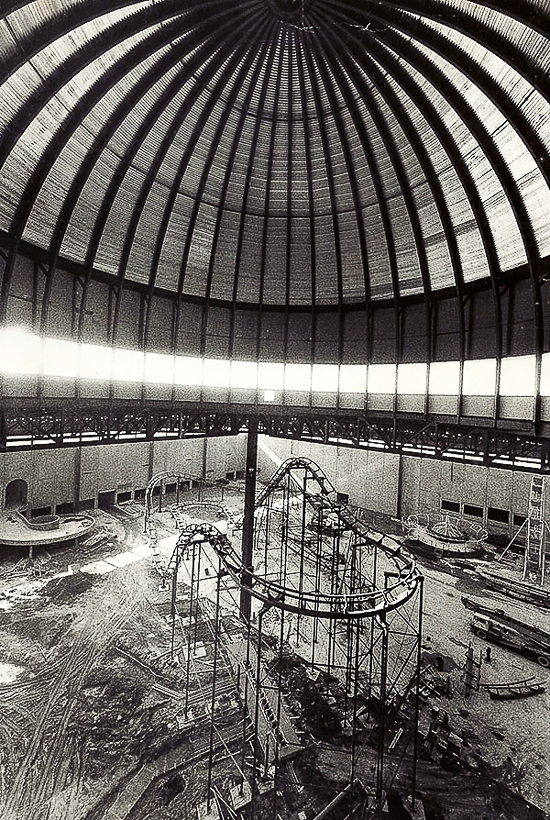
With all of the walls up, a roof built over the 303,000 square feet set aside for the Old Chicago Fairgrounds, the work began on the centerpiece: The Old Chicago Loop.
Back when Arrow Dynamics was contracted to provide a roller coaster for Old Chicago there hadn't been any looping coasters for at least half a century due to safety and ridership issues. Arrow's first coaster was the Matterhorn at Disneyland. That coaster was the first one to use tubular steel for the rails. Tubular steel allowed for designers to bend the track in any direction with the coaster locked to the rails. With that design innovation it was only a matter of time before someone took a coaster attached to a tubular steel track and turned riders upside down. The prototype of Arrow's first Corkscrew coaster was purchased by Walter Knott for Knott's Berry Farm but the first model built specifically for a park was the Chicago Loop that is under construction in the photo above.

This article about Old Chicago from the December 12, 1974 Lincoln Star talks about how according to Robert Brindle smaller stores at malls are not able to compete with anchor stores like a Sears, JC Penny, or others. To make a shopping experience that favors the small business owner anchor stores were replaced with amusement attractions.
The article also mentions that Old Chicago was not the end of Robert Brindle's plans for recreational retailing as the next step would be the $100 million "Village '76" mall for Mansfield Square, New Jersey.
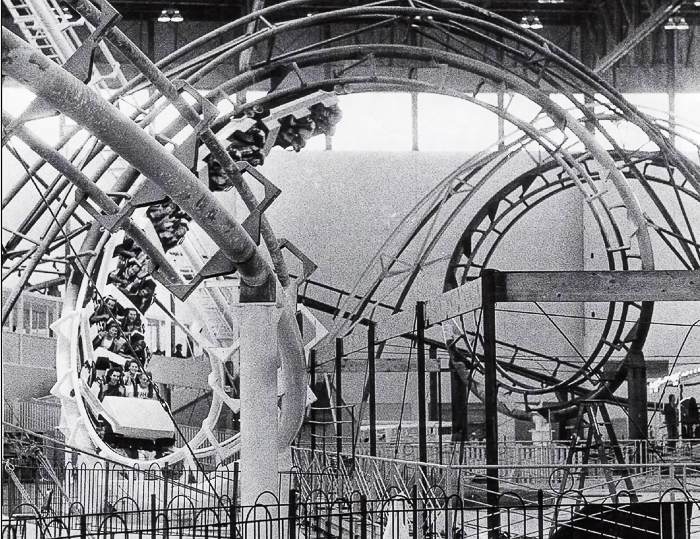
Here is a photo of a half painted Chicago Loop during the final months of construction taking a full train full of riders through the rides signature seven hundred and twenty degree corkscrew. Had Old Chicago opened on time in February of 1975 or a few days earlier than it did the Chicago Loop would have been the worlds first modern looping coaster.
Next
Old Chicago Index
Home
Copyright 1999 - 2026
Paul B. Drabek
